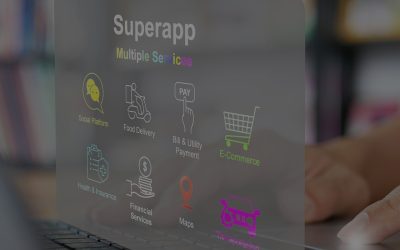Digital Business for a Sustainable Competitive Advantage
Today, as we seamlessly achieve things like ordering groceries or meals from the comfort of our homes, we have little hesitation in saying digital has truly impacted all walks of life, changing the way business is carried out. This article is a POV – digital business for a sustainable competitive advantage.
As we trace back the association of digital, digital marketing was the flagbearer of digital business, as organizations started to move from predominantly television and print advertising to online-technology-enabled platforms, trying to follow the customer into the digital world. In essence, customer adoption of digital communication technology drove organizational approach to digital marketing. When they moved to Facebook, FB become the buzzword, and when customers started tweeting, Twitter become the platform of engagement. In essence, customers led organizations in to the digital world.
With advent of cloud technologies, access to computational power and high-tech tools increased exponentially, enabling rapid development and deployment of technology platforms to propel business forward. Advent and customer adoption of ecommerce and e-marketplaces, have brought about a paradigm change in the fundamental building blocks of business, with technology becoming the driver of business growth and business dependent on technology platform to operate.
Today, businesses have embraced digital as key business driver and technology has come to the center stage, giving rise to two kinds of digital businesses:
- Digital as Business Driver
- Digital as the Business Disruptor – Where digital is the business model
Digital as a Business Driver and Digital Transformation:
Traditional brick and mortar businesses or offline businesses are now transforming themselves into digital businesses, where critical processes are either automated or performed with the help of digital technologies to increase operational efficiencies, and reduce cost and time to market. Data created by the usage of these platforms is being analyzed and processes optimized, leading to greater operational efficiency and eventually to cost leadership, a sustainable competitive advantage.
Digital as Business Disruptor – Where digital is the Business Model
New-age businesses like aggregators and e-marketplaces have built their businesses and revenue models on digital, disrupting markets across the globe, unlocking customer value. Mobility and penetration of mobile internet have revolutionized the way organizations interact, transact and monetize customer relationships. New markets are being created at the bleeding edge of digital innovation and old ones sacrificed at the altar of digital disruption, as digital capabilities are enabling businesses to create sustainable competitive advantage.
The Next Wave of Disruption and Innovation
AI, ML, blockchain, AR/VR are few of the technologies that have the potential to completely change the way digital businesses operate.
Starting with automation of repetitive tasks, AI and ML will reduce human intervention in most digital businesses. AI will begin to augment and slowly replace tactical decisions and strategy layers of digital business structure.
Next wave of cyber-physical systems, which enable direct human and machine interfaces, will drive new business and revenue models to monetize digital customer experiences enabled by IoT & 5G technologies.
Digital Imperative for Survival and Business Differentiation
In the age of the connected customer, digital is fast emerging as the only realistic capability to create cost leadership or differentiation leading to sustainable competitive advantage. Business that have adopted and transformed into digital businesses are starting to realize that digital is influencing everything about the organization. Perception of brands and their experiences are today largely dependent on digital platforms. Stakeholders, society and regulators are viewing the brand through the lens of digital experiences. Being viewed as a leader in adoption of technologies is proving to be key brand differentiator.
To summarize, the success or failure of most businesses today can be attributed to their speed of adoption of digital technologies. Transforming their businesses into digital businesses is the only way to survive the next wave of disruption and innovation, as being a brick and mortar business alone is no longer an option.











